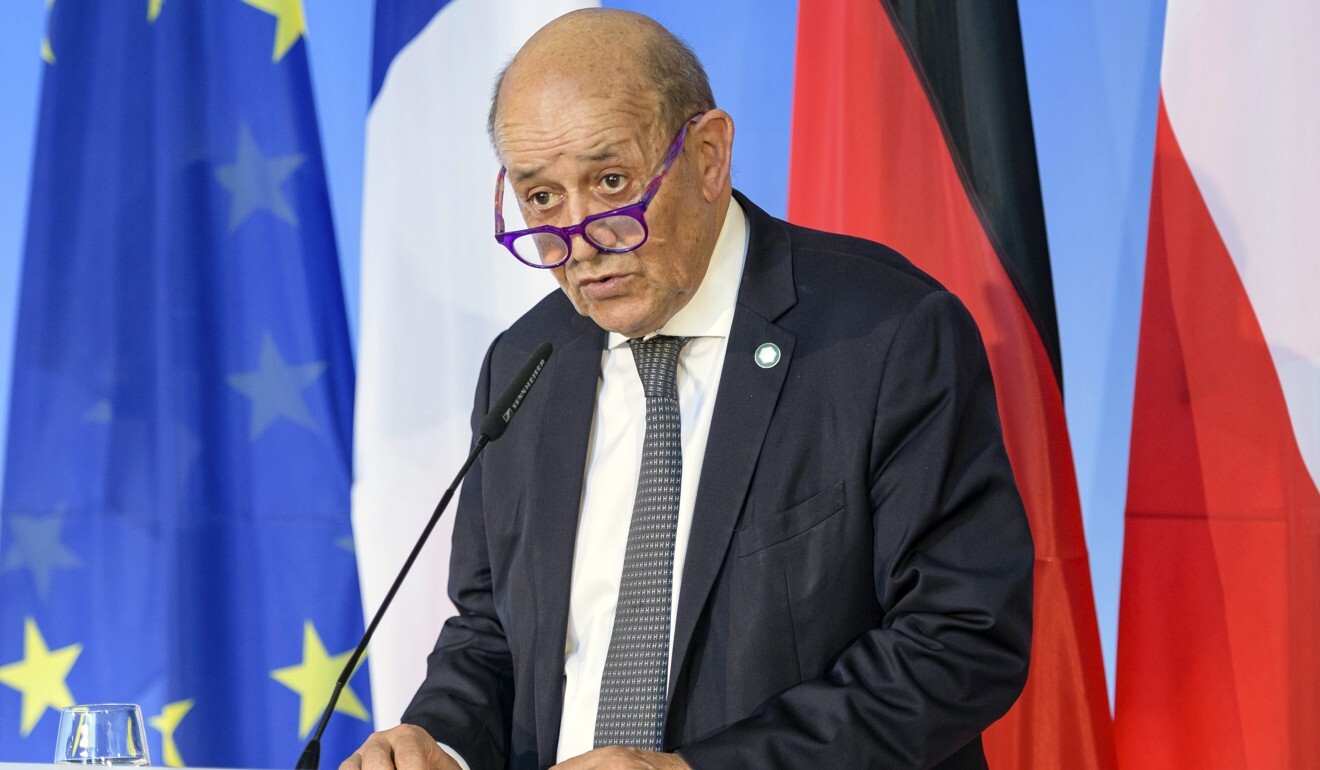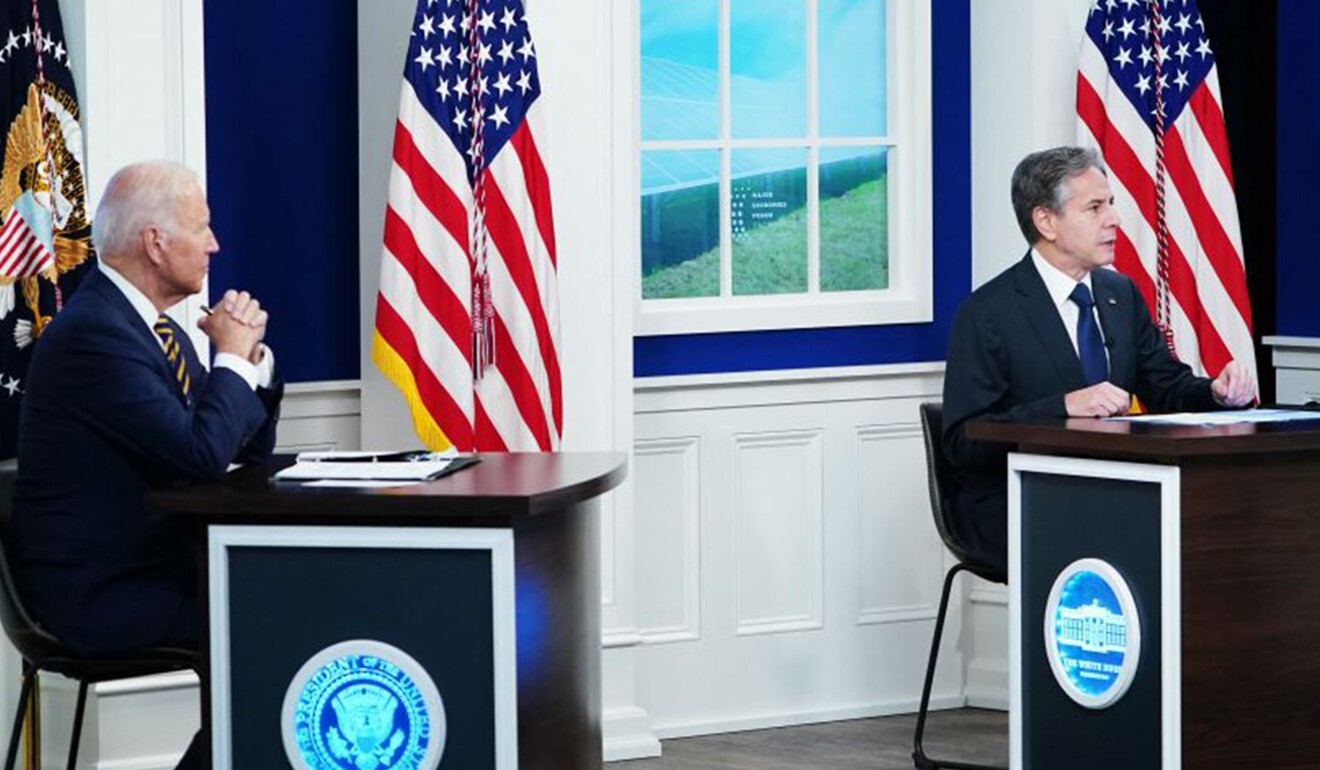
France recalls ambassadors from US and Australia in protest over submarine deal
- Paris’ move is in response to US-UK-Australia security partnership widely seen as a way to counter China
- The trilateral pact includes nuclear-powered submarines, nullifying Canberra’s commitment to buy conventional vessels from France
France recalled its ambassadors from the United States and Australia on Friday, a stunning development in the deepening fallout over Washington’s new security alliance with Canberra and London.
Announced on Wednesday, the new pact, known as “Aukus”, includes an agreement to help Australia secure a fleet of nuclear-powered submarines, effectively nullifying a 2016 commitment Canberra had made to buy conventional vessels from France.
France warns new Aukus alliance threatens security partnerships in Indo-Pacific
“At the request of the President of the Republic, I am recalling to Paris without delay our ambassadors to the United States and to Australia for consultations,” French foreign minister Jean-Yves Le Drian said in a statement.
“This exceptional decision is justified by the exceptional gravity of the announcements made on 15 September by Australia and the United States,” Le Drian said.

Australia’s cancellation of its purchase of French submarines, along with its new partnership with the US and Britain, constituted “unacceptable behaviour between allies and partners”, Le Drian said, adding that the episode had direct impact on the “vision we have of our alliances, of our partnerships and of the importance of the Indo-Pacific for Europe”.
In a statement, State Department spokesman Ned Price said the US administration understood France’s position, and hoped to “continue our discussion [with French officials] on this issue at the senior level in coming days”.
“The Transatlantic Alliance has fostered security, stability, and prosperity around the world for more than seven decades, and our commitment to those bonds and our work together is unwavering,” Price said.
Alongside commitments to share nuclear submarine technology, the Aukus agreement also calls on the three countries to cooperate on integrating artificial intelligence, quantum computing and undersea capabilities into their military operations.
As well as the blowback from France, the trilateral security pact has infuriated another powerful player in the Indo-Pacific region and the widely perceived impetus for the new alliance: China.
Responding to the new alliance, Beijing accused Washington and Canberra of seeking “wars and destruction” and said the pact threatened “regional peace and stability, intensified the arms race and undermined international non-proliferation efforts”.
China hits out at ‘highly irresponsible’ Aukus defence pact
The submarine fleet Australia will build in collaboration with the US and Britain will be nuclear in propulsion only, rather than carry nuclear weapons.
While the White House has stated that it informed France of Aukus in advance, The New York Times reported that US and Australian officials had kept the deal secret until just before it was announced.
France’s current ambassador to the US, Philippe Etienne, told NPR on Thursday that the US decision was “disappointing” and had eroded trust between Paris and Washington, but added: “I’m sure trust can be redeemed.”
France, considered by Washington its “oldest friend and ally”, is not thought to have recalled its ambassador to the US since 1793.

Even before Friday’s development, there were early signs that the Aukus announcement threatened to unfurl into a diplomatic crisis with far-reaching implications.
After the announcement, France cancelled a gala in its Washington embassy to celebrate the US-French alliance, while one French member of the European Parliament threatened to hold up an EU-Australian free trade agreement over the episode.
Coming atop the United States’ chaotic withdrawal from Afghanistan and the revelation on Friday that a recent US drone strike there killed only civilians and no militants, the deepening dispute over Aukus comes as another blow to a US president who has trumpeted his decades of foreign policy experience and vowed to embrace multilateralism.
“France, our ally since 1780, just recalled their ambassador,” US Representative Mary Miller, Republican of Maryland, wrote on Twitter while sharing a tweet by Biden proclaiming that “diplomacy is back”.
News of the recall came shortly after US deputy secretary of state Wendy Sherman met with Australia’s foreign affairs and trade secretary Kathryn Campbell in Washington.
The two officials “highlighted the enduring nature of the US-Australia partnership, our shared values of democracy and respect for human rights, and our cooperation on Covid-19”, State Department spokesman Ned Price said.
“They discussed economic recovery and resilience in the Indo-Pacific region and pandemic preparedness, as well as Australia’s resistance to [China’s] economic coercion,” Price said.

